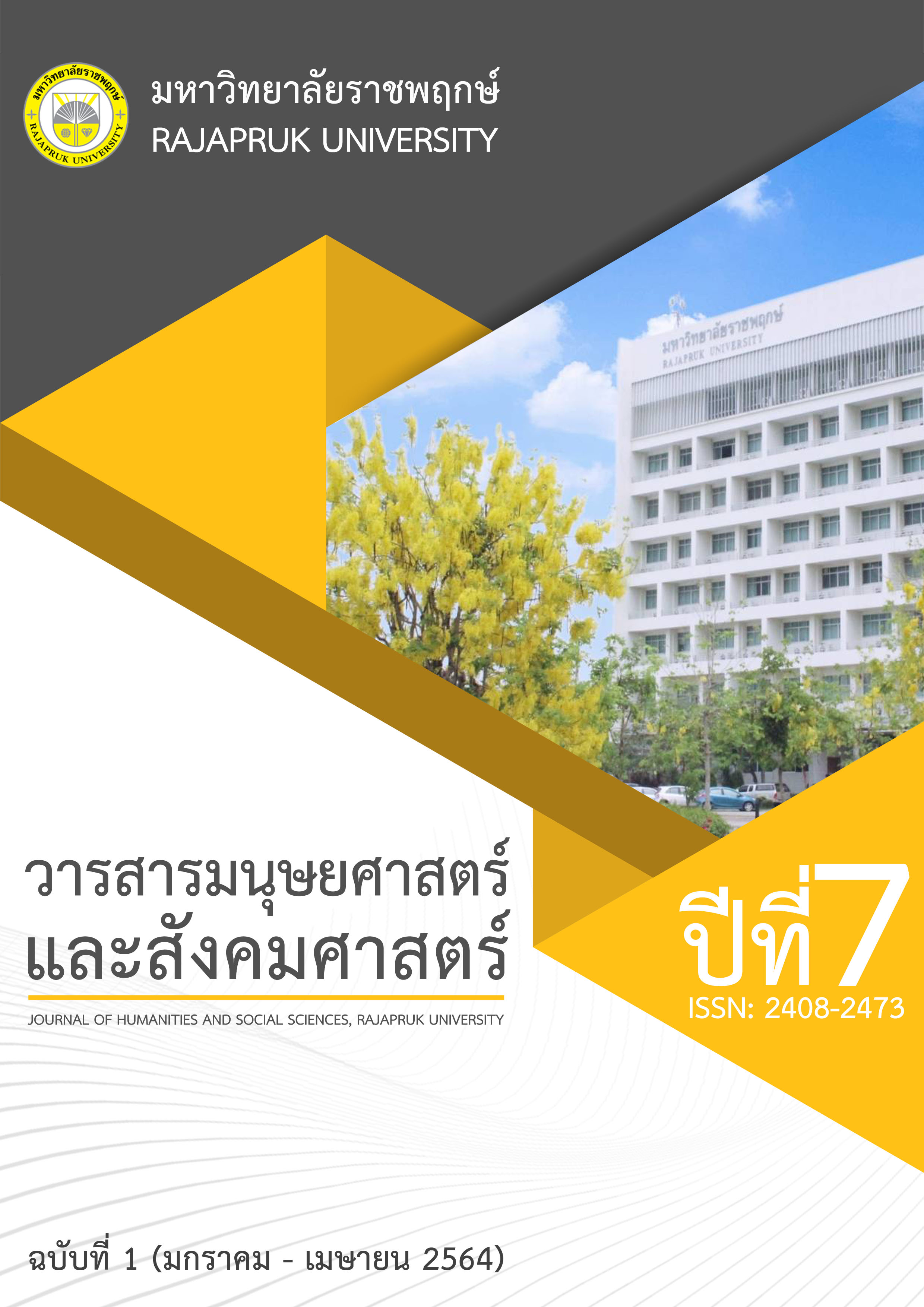Active Learning Management of Lower Secondary Education Teachers in Thailand 4.0
Main Article Content
Abstract
The objectives of this research were: 1) to study the state of active learning management of lower secondary education teachers in the Thailand 4.0 era, 2) to explore opinions of lower secondary education students, 3) to compare teachers' practice for the active learning management against students' opinions, and 4) to explore teachers’ active learning management behavior and students’ learning behavior. The samples consisted of 10 teachers and 431 students. The tools were questionnaires and behavior observation forms for teachers and students. Data were collected by the researcher. The data was analyzed by using frequency, percentage, mean and standard deviation, Mann-Whitney U Test, and content analysis. The results showed that: 1) The overall teachers’ active learning management was at a high level. 2) The overall students’ opinions towards their teachers’ active learning management were at a high level. 3) The comparative study, it was found that teachers’ active learning management practice was higher than students’ opinions of learners in 3 sides which teachers’ active learning management practice and learner's opinions about learning activities differences were statistically significant at 0.01 and opinions about using media, innovation, measurement and evaluation of learning differences were statistically significant at .05. The results of the observation, the overall teachers’ practice was at a medium level, and the overall students’ behavior was at a high level.
Article Details
References
กระทรวงศึกษาธิการ. (2551). หลักสูตรแกนกลางการศึกษาขั้นพื้นฐาน พุทธศักราช 2551. กรุงเทพฯ: โรงพิมพ์ชุมนุมสหกรณ์การเกษตรแห่งประเทศไทย.
กองบริหารงานวิจัยและประกันคุณภาพการศึกษา. (2560). Thailand 4.0 โมเดลขับเคลื่อนประเทศไทยสู่ความมั่งคั่ง มั่นคง และยั่งยืน. ค้นเมื่อวันที่ 3 มิถุนายน 2562, จาก http://www.libarts.up.ac.th/v2/img/Thailand-4.0.pdf 20/6/2562
เชิดศักดิ์ ภัคดีวิโรจน์. (2556). ผลการจัดการเรียนรู้เชิงรุก เรื่องทักษะกระบวนการทางคณิตศาสตร์ ที่มีต่อความสามารถในการแก้ไขปัญหาทางคณิตศาสตร์ การคิดอย่างมีวิจารณญาณ และความเชื่อมั่นในตนเอง ของนักเรียนชั้นมัธยมศึกษาปีที่ 3. ปริญญานิพนธ์ปริญญามหาบัณฑิต. มหาวิทยาลัยศรีนครินทรวิโรฒ.
ไชยยศ เรื่องสุวรรณ. (2553). Active Learning. ข่าวสารวิชาการ คณะเภสัชศาสตร์มหาวิทยาลัยเชียงใหม่.
นนทลี พรธาดาวิทย์. (2561). การจัดการเรียนรู้แบบ Active learning. พิมพ์ครั้งที่ 2. กรุงเทพฯ: ทริปเพิ้ล เอ็ดดูเคชั่น.
บุญชม ศรีสะอาด. (2556). การวิจัยเบื้องต้น. พิมพ์ครั้งที่ 9. กรุงเทพฯ: สุวีริยาสาส์น.
วันวิสา ประภาศรี. (2562). การพัฒนาชุดกิจกรรมการเรียนคณิตศาสตร์ โดยใช้การสอนแบบเปิดร่วมกับการใช้ปัญหาเป็นฐาน และ STEM Education ที่ส่งผลต่อความคิดสร้างสรรค์ ความสุขในการเรียน และผลสัมฤทธิ์ทางการเรียน ของนักเรียนชั้นมัธยมศึกษาปีที่ 1. วิทยานิพนธ์ปริญญามหาบัณฑิต มหาวิทยาลัยราชภัฏสกลนคร.
สถาพร พฤฑฒิกุล. (2555). คุณภาพผู้เรียน เกิดจากกระบวนการเรียนรู้. วารสารการบริหารการศึกษามหาวิทยาลัยบูรพา, 6(2): 1-13 ค้นเมื่อวันที่ 5 มิถุนายน 2562, จาก https://www.tcithaijo.org/index.php/EduAdm_buu/article/download/11570/10425/
สำนักงานคณะกรรมการการศึกษาขั้นพื้นฐาน. (2561). แนวทางการประเมินคุณภาพตามมาตรฐานการศึกษา ระดับปฐมวัย ระดับการศึกษาขั้นพื้นฐาน และระดับการศึกษาขั้นพื้นฐานศูนย์การศึกษาพิเศษ. ค้นเมื่อวันที่ 10 สิงหาคม 2562, จาก http://bet.obec.go.th/index/wp-content/uploads/2018/08/nn3.pdf
สำนักงานเลขาธิการสภาการศึกษา กระทรวงศึกษาธิการ. (2561). มาตรฐานการศึกษาของชาติพ.ศ.2561. ค้นเมื่อวันที่ 10 สิงหาคม 2562, จาก http://www.sesa17.go.th/site/images/
Publish2.pdf


